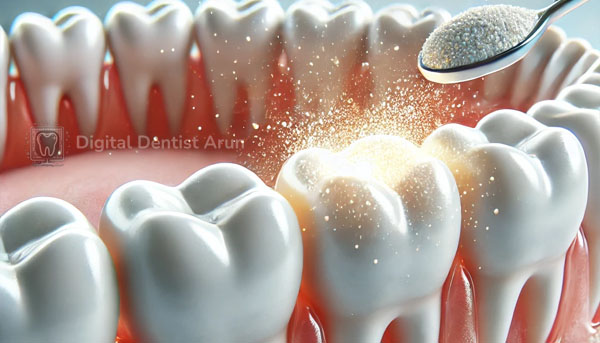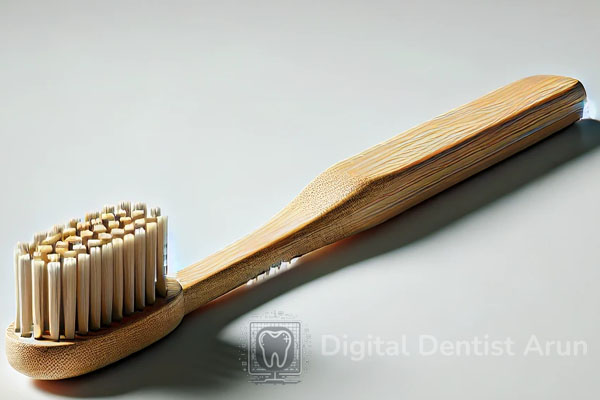Every human being needs their teeth to chew food, speak and have proper smiles on their faces. However, our routine activity is a different ball game whereby it exposes the teeth to wear the enamel resulting in cavities.
Thankfully, there’s a natural, solution to repair and strengthen teeth called as remineralization of teeth. This article covers all the information you need to know about remineralizing your teeth naturally. Let’s have a look at its tips, techniques and science.
1. What is Remineralization of Teeth?
Mineralization theory of demineralization and remineralization of teeth reflects the natural ability of a tooth to regain its lost mineral matter. This includes calcium and phosphate within the enamel layer. Enamel is the crown of the tooth which prevents the other part of the tooth from cavities and any other wear and tear.
So, How do Teeth Lose Minerals?
Enamel is eroded by acidic foods, sugary drinks or poor oral hygiene. It leads to a process called demineralization where the teeth lose its minerals. This, overtime results in cavity formation, tooth sensitivity, and weak teeth.

2. How Remineralization Works
If conditions in the mouth improve, and the pH reaches normal levels, the amount of calcium and phosphate rise. The teeth can repair themselves if there are only small damages and early tooth decay.
Key Components of Remineralization:
- Calcium and Phosphate Ions: They are present in saliva and help in reforming the enamel.
- Fluoride: It fortifies the enamel and resists to being dissolved by acid.
- Healthy Oral Environment: The ideal pH and the limited consumption of sugar are significant factors.
3. Why Is Remineralization of Teeth Important?
Remineralization is not a serious matter. It is repairing the damaged portion of teeth to keep the teeth in good condition in the long run. This helps to minimize the danger of dental problems in the days to come.
Benefits of Remineralization:
- Prevention of Cavities: Since the enamel is recolonized it reverses early decay, and this is what remineralization does.
- Stronger Teeth: Desensitization of teeth leads to teeth that are more resistant to acid attacks when they are remineralized.
- Reduced Sensitivity: Thicker and harder enamel protects the nerve endings therefore alleviating the pain.
- Avoiding Dental Procedures: Minimally-invasive procedures can be cured through remineralization and thus does not require filling or crowns.
4. Why it’s a Game-Changer:
The approach utilized in conventional treatment techniques involves cutting and carving to restore decayed teeth. However, remineralization includes such methods which are non-invasive and natural for the human body.
Science that Underpins the Process of Reinforcement of Teeth
The Dental Enamel and its Significance
Enamel is the hardest tissue in the human body. But it has no capacity to repair itself once damaged. This is where remineralization comes in the picture again, where it helps reverse the process before the enamel becomes irreversibly damaged.
The Role of Saliva
Saliva is the natural tool of remineralization of teeth. It has minerals such as calcium and phosphate, which are necessary for the process of rebuilding the enamel. Also, saliva aids in a rinsing process of the mouth and counteracts the acids that lead to demineralization.
The Mechanisms through Which Fluoride Promotes Remineralization
Fluoride works as a mediator in remineralization process. When ingesting fluoride, it reacts with calcium and phosphate in the enamel to form a compound called fluorapatite, which becomes resistant to acid attacks on the enamel.
5. List of Foods That Can Remineralize Teeth
Dietary foods also have a major role to play in the treatment of dental ailments. Our eating habits affect our teeth. Some foods have the ability to remineralize the teeth and prevent further enamel erosion by adding the right type of nutrients to the teeth.
Top Foods for Remineralization:
- Dairy Products: Milk, cheese and yogurt are good sources of calcium and phosphate.
- Leafy Greens: Spinach, kale, and broccoli can supply the daily need of essential minerals.
- Nuts: Starchy foods like rice and normal bread, and especially, nuts like almonds and walnuts are helpful in decreasing the amount of acid in the mouth.
- Green Tea: Bacterial repellents and materials that help reinstate the strength of tooth enamel are also present in this product.
- Fish: Rich in Vitamin D, they assist your body to absorb calcium.
Foods to Avoid:
- Sugary candies and sodas.
- Fruits such as lemons and vinegar.
- Snacks that get stuck between the teeth.
Numerous dental products are specifically designed to aid the remineralization of teeth. These products help strengthen enamel and reverse early damage.
6. Top Remineralization Products:
1. Curodont Repair:
- Uses self-assembling peptides to rebuild enamel.
- Clinically proven to treat early cavities.
2. Recaldent (CPP-ACP):
- Derived from milk protein, it delivers calcium and phosphate ions to teeth.
3. Fluoride Toothpaste:
- Regular use prevents demineralization and aids enamel restoration.
4. Remineralizing Gels:
- Products like MI Paste provide an extra boost of minerals to teeth.
7.Daily Habits to Support Remineralization of Teeth
Changing daily habits can greatly enhance the effectiveness of remineralization of teeth.
Oral Hygiene Practices:
- Brush Twice a Day: Use a fluoride toothpaste and brush gently for two minutes.
- Floss Daily: Remove food particles from between the teeth.
- Use Mouthwash: Choose one with remineralizing properties.
Lifestyle Changes:
- Stay Hydrated: Water promotes saliva production, which helps to remineralize.
- Chew Sugar-Free Gum: Stimulates saliva flow and balances pH levels.
- Limit Sugary Snacks: Sugar fuels the bacteria that cause enamel erosion.
8. Popular Dental Treatments:
- Fluoride Varnishes: Used by dentists, they give a heavy concentration of fluoride suitable for repairs on deeper layers of the enamel.
- Sealants: Shield the grooves of the teeth from the ability of bacteria to create decay.
- Guided Remineralization Therapy: Employs the use of advanced products such as Curodont for designated strengthening of the enamel.
9.Can All Teeth Be Remineralized?
While the remineralization of teeth is highly effective for early decay and enamel erosion, it cannot reverse advanced decay or cavities that have reached the dentin.
When Remineralization Works Best:
- White spot lesions.
- Minor enamel erosion.
- Initial stages of tooth decay.
When Are Other Treatments Necessary:
- Severe cavities.
- Cracked or broken teeth.
- Infected pulp requiring root canal treatment.
How long does it take to remineralize teeth?: Exploring the time needed for tooth remineralization
It only takes about three months to remineralize tooth enamel. But this time may differ with the amount of damage, diet and the oral health of an individual.
Typical Timelines:
- Mild Cases: It usually takes 3-4 weeks. However, if proper care is taken of, it could last much longer than that.
- Moderate Cases: 1-3 months since they use remineralizing products.
10. The Future of Remineralization: Emerging Technologies
This form of dental treatment is still progressing. As a matter of fact, in the future it seems to be quite possible to carry out the remineralization of teeth. State of the art technologies and products have emerged in the field to assist the task in better ways than has ever been thought possible in the past.
Exciting Innovations:
- Nano-Hydroxyapatite: Resembles natural enamel and seals even the tiniest existing defects.
- AI in Dentistry: There are localized remineralization treatments that can be customized from digital scans of a patient’s teeth.
- Laser-Assisted Therapy: Promotes the growth of enamel.
Conclusion
Teeth remineralization is one of the effective, natural, and drug-free solutions to the problem that affects the health of your smile. People brush their teeth mechanically, without knowing a lot of things about it, which also includes resorting to wear of their enamel. Now, knowing the scientific background, choosing the correct procedures and products, it’s possible to protect teeth for years. So the moral of the story is, prevention is better than the cure. So take care of your teeth enamel now and keep smiling!

